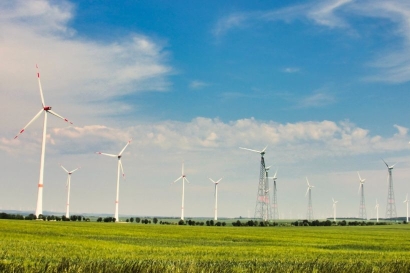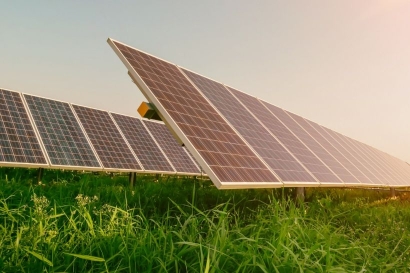
Mao Zhenhua is the founder of China Chengxin Group, the chief economist of China Chengxin International, a professor at the School of Business and Economics of the University of Hong Kong, a member of the expert group of the Chief Executive's Policy Unit of the Hong Kong Special Administrative Region Government, a co-director and professor of the Institute of Economics of Renmin University of China, the dean of the Dong Furong Institute of Economic and Social Development of Wuhan University, and the co-chairman of the China Macroeconomic Forum (CMF).
The following views are compiled from Mao Zhenhua’s speech at the CMF Macroeconomic Hot Issues Seminar (No. 88)
Since the beginning of this year, China's exports have maintained a good growth momentum against the backdrop of an increasingly severe international situation, frequent geopolitical conflicts, and the intensifying Sino-US game. This fully reflects China's strong production capacity, as well as the supply chain advantages, innovation advantages, and comparative cost advantages behind exports. However, from a medium- to long-term perspective, China's foreign trade and external environment will be increasingly affected by changes in the global geopolitical and economic landscape, especially the Sino-US game. I would like to discuss two aspects of this.
1. “De-risking” is not “de-cold war”, but rather a “new cold war”
The goal of the United States in instigating the current game with China is to achieve a "Cold War state". In recent years, the impact of geopolitical evolution has surpassed many conventional economic factors, especially the game between China and the United States has become the dominant force affecting global economic and political stability. In this context, we should first see the basic framework of the US strategy toward China. Looking back at the so-called "US-Soviet Cold War" that lasted for more than 40 years from 1945 to 1991, the United States adopted a long-term confrontation and competition strategy that was neither war nor peace against the former Soviet Union and its allies by establishing an alliance system including politics, military and diplomacy, and finally defeated the former Soviet Union. On the issue of China, trying to replicate past successes is also the basic idea of the current US strategy toward China, which is why I call it the "new Cold War". In 2017, Trump signed an executive memorandum authorizing the Office of the United States Trade Representative to conduct a "301 investigation" against China, taking the lead in initiating a trade conflict. But Trump is not a traditional American establishment. While launching a trade war against China, he also fought a trade war with his military and political allies, and did not form a situation of group confrontation. Biden made major adjustments to Trump's strategy after taking office. First, he continued the traditional American diplomatic thinking and re-established the core alliance pattern of NATO and the European Union, including a few developed countries in the Asia-Pacific region such as Japan and South Korea, trying to isolate China by winning over allies and forming alliances. Second, he expanded the Sino-US trade conflict to other levels such as science and technology, military, and personnel exchanges, trying to achieve decoupling from China. Looking back on this process, it fully reflects the characteristics of the new Cold War: first, do not fight a hot war, second, aim to divide or even isolate each other, and third, comprehensive competition and confrontation in economy, politics, diplomacy, and system. Judging from the current situation, the situation is also evolving towards the "trilogy" of Sino-US game that I predicted before.
From "decoupling" to "de-risking", the new Cold War pattern has basically taken shape. Biden, as an establishment politician, has tried to win over Europe and China to decouple, but China and Europe are each other's second largest trading partners, which means that Europe will bear huge economic costs. During the World Economic Forum Annual Meeting in early 2023, European Commission President von der Leyen first proposed the EU's "de-risking" of China. Biden made concessions to Europe and finally accepted this concept, thus reaching a consensus between the United States and Europe on the China issue. Since then, I have publicly stated many times that the adjustment of the US strategy toward China from "decoupling" to "de-risking" does not mean that the competition and game between China and the United States have eased, but that the new Cold War pattern has basically taken shape, which marks that the United States and its allies have reached a unified understanding and strategy toward China. The "de-risking" framework maintains the exchanges between Europe and the United States and China in general trade, energy, capital and other ordinary fields, but adjusts the content covered by "risks", not only involving the high-tech, military and other fields that we generally think of, but also some new fields. We should note that the content and degree of tightness of these new areas are dynamically adjusted - as long as they are considered not in the interests of Europe and the United States, they will be included in the scope of "risk". Among them, new energy vehicles are a very realistic example. New energy vehicles do not belong to the field of high technology and military, but because China has advantages in technology and cost, and threatens the relevant interests of Europe and the United States, they are included in the content of "risk". The United States and Europe have also reached a consensus on this strategic measure. Therefore, the change from "decoupling" to "de-risking" is a very important change in Sino-US relations, and it is also a new environment that China will face in the long term in the global geopolitical and economic evolution. This is also an important reason why I believe that the new Cold War pattern has been formed.
The prelude of the new Cold War has been opened, but the "iron curtain" has not yet formed, and China still has a certain window of adjustment. On the one hand, China's general goods trade with the United States and European countries and related personnel and capital exchanges can still continue. Although affected by "de-risking", from the foreign trade in the first half of the year, we can still feel China's advantages in the underlying goods and basic goods of the entire world trade, especially the supply chain advantages we have established in recent years. China's exports have remained resilient since the beginning of this year; and the exports of private enterprises are also recovering, which deserves our further attention and thinking in the process of formulating "stable foreign trade" policies in the future. Secondly, under the framework of "de-risking", various countries still have different interests, thus forming further game space. Although the current new Cold War pattern has been formed, it is not a monolithic block. For example, for the export restrictions on China's new energy vehicles, German companies and the German government have been expressing goodwill and opposing Europe's practices such as imposing tariffs. From this perspective, we have a lot to do in geopolitics , and it is necessary for foreign trade-related policies to be closely coordinated with national security and foreign policy. In recent years, China has made many policy adjustments and taken the initiative to ease the tense foreign relations that had formed in the past. In particular, in the first half of this year, China resumed talks with Europe, Australia, New Zealand, Japan, South Korea and other countries, and unilaterally opened visas to some countries, which caused a great response internationally. This demonstrated our flexibility in the field of opening up and foreign relations. At the same time, it will also help break the encirclement of China established by the United States.
From "decoupling" to "de-risking", "security" and "interests" are growing and declining, and are in dynamic balance. The impact of geopolitical evolution on the global economy and trade is fermenting, and companies, especially multinational companies, have to pay more attention to "security". In April this year, I attended the China-US Business Leaders Roundtable held in the United States. The theme of the meeting was "Balance between Security and Economic Interests". At the meeting, American entrepreneurs proposed that in the face of national security, the interests of enterprises, entrepreneurs and investors are not worth talking about, and there is no room for game at all. Therefore, it is very important to establish a national security concept in the economic field and to establish a balance between national security and economic interests. I think it is necessary to summarize the good work done in this regard in recent times and some good results achieved, and use it as a basis to provide a good guide for China's future foreign economic and trade work.
2. Eliminate misconceptions about foreign investment and combine the introduction of foreign investment with enterprises going overseas
The background of foreign direct investment has changed, but its positive significance for the Chinese economy has not changed. Under the background of deglobalization and anti-globalization, some foreign-invested enterprises are currently under geopolitical pressure, especially the "de-sinicization" led by the United States, and their own competitiveness has weakened. The momentum of direct investment in China has slowed down. At the same time, some enterprises have withdrawn and reduced their capital. Looking back, foreign-invested enterprises have played a vital role in China's reform and opening up, the improvement of China's total factor productivity, the improvement of China's product competitiveness, and China's modernization process. We need to correctly understand their historical role. Looking to the future, although history is advancing and the background of foreign investment in China has changed, the positive role played by foreign-invested enterprises has not changed. For example, from the perspective of technology spillover, the introduction and utilization of foreign cutting-edge technologies, whether in terms of time or efficiency, the foreign direct investment method is obviously better than the import or self-development method. Protecting the interests of foreign-invested enterprises in China and achieving a state of "you have me, I have you" is a necessary path to maximize China's interests. China's current policies clearly express this attitude and have done some solid work. Regardless of the final effect, this atmosphere of public opinion itself is a good solution and a defense of the basic principles of free trade.
We cannot associate foreign investment with being unpatriotic, and there is still room for further improvement in the business environment for foreign investment. At present, there are some noises in the society regarding the understanding and attitude towards foreign-funded enterprises, and many views and opinions are not very calm. Some views simply associate working in foreign companies or buying foreign goods with being unpatriotic. In addition, there are some views that mistakenly interpret exports as a favor to other countries, especially China's favor to the United States, and believe that without China's cheap and good products, other countries will have no choice. As a major trading country, China's exports are still an important support for driving economic growth. Exports themselves are based on reciprocity, and it is necessary to strengthen the public's correct understanding of exports. From the perspective of export companies, orders are the source of all competitiveness and the basis for the survival of enterprises. All customers who form demand for products and services should be treated with a friendly attitude. Recently, there have been some attacks on foreigners in some places. Although these are extreme cases, we need to guide public opinion and social trends to further establish and optimize the business environment for foreign-funded enterprises in China.
Correctly understand the background and reasons for enterprises to go overseas, and avoid being labeled as "capital flight". From the perspective of the types of enterprises going overseas, they can be divided into two categories: "passive going overseas" and "active going overseas". For passive going overseas, it is mainly affected by the current US-led decoupling and "de-risking". Under the pressure of the US government, many foreign-funded enterprises have gradually reduced their investment in China and even rebuilt their production capacity in other countries. Among them, some core foreign-funded enterprises that are in a dominant position in the industrial chain require Chinese upstream and downstream enterprises to transfer production capacity, mainly involving enterprises in related fields such as mobile phones and automobiles. In addition, there are many excellent manufacturing enterprises in China that take the initiative to go overseas. By investing and building factories overseas, they can get closer to overseas markets and bypass irrational and unfair trade barriers. At the same time, the destination countries for Chinese enterprises to go overseas are generally selected in countries with relatively low production factors and labor costs, which helps to reduce production and operating costs. Regardless of the type of enterprise going overseas, we need to correctly understand and view it, and we need to make it clear that enterprises going overseas does not mean capital flight. From the development trajectory of the international economy, enterprises going overseas is also an inevitable trend. If we do not correctly view companies going overseas, then we will not be able to correctly understand foreign direct investment, because foreign direct investment is essentially a manifestation of foreign companies investing in China.
It is of great significance for companies to go overseas, which will help consolidate my country's supply chain advantages and stabilize my country's economic growth. Although China's current trade volume with the United States has dropped to third place, behind ASEAN and the EU, our exports to ASEAN and Mexico through re-export trade have increased significantly. This shows that China still has advantages in the supply chain, but it also reflects that Chinese companies are also facing greater potential threats, that is, European and American countries are gradually reducing their dependence on China's supply chain and promoting the so-called "China+" strategy in other countries. , if Chinese companies do not follow up and go overseas in time, the original market share will be slowly filled by companies from other countries. In addition, only Chinese companies that have been active within the global supply chain system can share the dividends of the upgrading and development of the global industrial chain. Going overseas is also a move that can rise to the level of national interests. Take Japan as an example. In the 1980s, Japan experienced a long period of slow and low growth after the bubble economy burst. In the past three decades, Japan’s real per capita GDP growth rate was less than 1% per year. However, Japanese companies have accumulated a lot of wealth through overseas investment and operations. The scale of overseas assets continues to expand, GNP (gross national product) continues to rise, and Japan's global investment income plays an important role in stabilizing corporate development and stabilizing the Japanese economy. It can be said that the current significance of Chinese companies going overseas is greater than usual. I suggest that companies should be encouraged and supported in the field of macro policies to go overseas, and at the same time, correct guidance should be given in terms of public opinion. Relevant scholars should speak out to society objectively and rationally to avoid the spread of wrong thoughts and constantly strive for China's foreign trade and economy. Better external environment.






